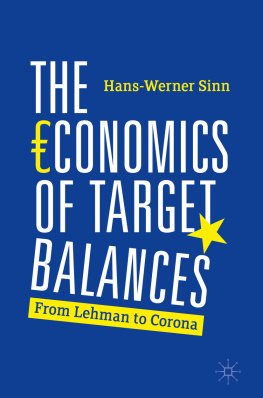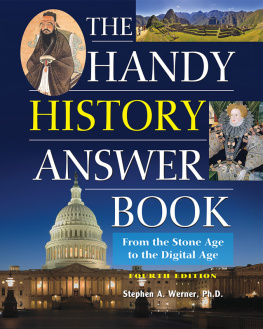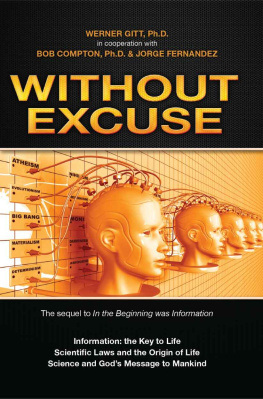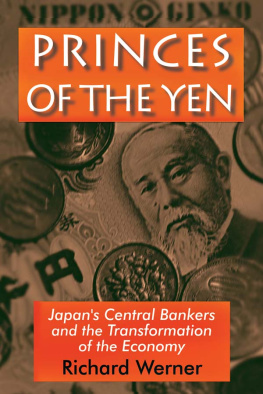The International Library of Sociology
THE HISTORY OF ECONOMICS
The International Library of Sociology
ECONOMICS AND SOCIETY
In 11 Volumes
I | The Danube Basin | Basch |
II | The Economic Development of the Middle East | Bonn |
III | Economics of Migration | Issac |
IV | Economy and Society | Parsons et al |
V | The History of Economics | Stark |
VI | The Ideal Foundations of Economic Thought | Stark |
VII | The Political Element in the Development of Economic Theory | Myrdal |
VIII | Population Theories and the Economic Interpretation | Coontz |
IX | The Social Problems of an Industrial Civilization | Mayo |
X | Studies in Economic Development | Bonn |
XI | Transitional Economic Systems | Douglas |

First published in 1944
by Routledge, Trench, Trubner & Co., Ltd
Reprinted 1998, 2001 by Routledge
2 Park Square, Milton Park, Abingdon, Oxon, 0X14 4RN
or
270 Madison Avenue, New York, NY 10016
First issued in paperback 2010
Routledge is an imprint of the Taylor & Francis Group
1944 Werner Stark
All rights reserved. No part of this book may be reprinted or reproduced or utilized in any form or by any electronic, mechanical, or other means, now known or hereafter invented, including photocopying and recording, or in any information storage or retrieval system, without permission in writing from the publishers.
The publishers have made every effort to contact authors/copyright holders of the works reprinted in The International Library of Sociology. This has not been possible in every case, however, and we would welcome correspondence from those individuals/companies we have been unable to trace.
British Library Cataloguing in Publication Data
A CIP catalogue record for this book
is available from the British Library
The History of Economics
ISBN 978-0-415-17528-9 (hbk)
ISBN 978-0-415-60516-8 (pbk)
ISBN 978-1-136-22841-4 (ePub)
Economics and Society: 11 Volumes
ISBN 978-0-415-17819-8
The International Library of Sociology: 274 Volumes
ISBN 978-0-415-17838-9
Publishers Note
The publisher has gone to great lengths to ensure the quality of this reprint but points out that some imperfections in the original may be apparent
CONTENTS
In the last three centuries historiography, as a branch of learning, has passed through three consecutive stages. In the beginning it was entirely pragmatical. The historians investigated the happenings of the past in the conviction that they would be able to infer from them valuable maxims of practical policy, and in their attitude to the actions of men as well as of nations they were frankly critical, dispensing freely praise and blame according to the moral standards to which they adhered. When the rationalistic spirit was ousted by romanticism, a new type of historiography grew up. Knowledge was now sought for its own sake. The aim was no longer to learn lessons, but to establish factsto find out, as Ranke put it, how things really happened. This purely descriptive treatment of the past has now had its day. The archives of the world have been ransacked for the relevant facts, and future discoveries will almost certainly be confined to mere points of detail. Recently, therefore, historians have been looking out for new tasks. The words interpretation and explanation indicate the direction in which they have tended to move.
This general march of history as a branch of learning has been followed by all the sub-divisions and sub-disciplines which compose this broad field of knowledge. Some have advanced more boldly, others lagged, and are still lagging, behind. The last among the stragglers is the history of economic doctrine. It is still common practice to treat the economists of the past as men who, for unaccountable reasons, have put forward, and persevered in, theories which, in the light of reason, appear erroneous and even ridiculous ; and if there are several works which conscientiously try to avoid gross valuations, there is hardly one which consistently endeavours to show why mercantilists, physiocrats, classical economists, and members of the historical school developed and defended opinions which we are no longer willing to share. It is from this fact that the present publication would draw its raison dtre. It is not so much meant to impart knowledgealthough it is hoped that it will not be without value even in this respectas to stimulate thought.
The form in which I present this essay to the public is not the one in which I first put it to paper. When I came to this country in August 1939, I began a critical investigation of all the books which have been written on the history of economic thought, in the order of their publication, as they are enumerated in Appendix II. The result was a rather lengthy book in which the reader had to make his way through long disquisitions and discussions until the positive thesis of the author was reached. The work might have been very interesting for one who intended to write on the development of economics, but it would have heavily taxed the patience of those who only want to read about it.
Thus I came to the conclusion that it would be better for the propagation of my idea to put it forward in a positive and direct way, without carrying on a war of words with those who have cultivated the same field before me. If I have succeeded in proving my thesis, I have also succeeded in disproving theirs. I hasten, however, to add that the point of view which I have adopted is not entirely new, a tendency towards it being distinctly noticeable in some of the more recent books on the subject ; but I think that it is here for the first time consistently applied.
In the completion of the first version I was, as far as English style was concerned, very kindly assisted by Miss Kathleen Wood-Legh. The manuscript of the present essay was looked through by Miss Helen Oman. Mr. Anthony Hyde and Mr. Robert Stevenson have suggested further valuable linguistic improvements.
The whole of the research connected with this investigation was carried out in the Marshall Library of Economics at Cambridge, and I am grateful to Mr. Donald Missen and Mr. James Claydon for the willing assistance given me then, and ever since.
W. STARK.
CAMBRIDGE,
January 9, 1944.
There are, in the last analysis, two ways of looking upon the history of economic thought : the one is to regard it as a steady progression from error to truth, or at least from dim and partial vision to clear and comprehensive perception ; the other is to interpret every single theory put forward in the past as a faithful expression and reflection of contemporary conditions, and thus to understand it in its historical causation and meaning.







